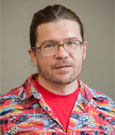
Pavel Baranov
University College Cork
Ireland
EMBO Practical Course
Please see EMBL’s COVID-19 safety policy for testing and other requirements to attend this on-site course.
Regulation of translation is key in the control of gene expression, playing a critical role in many biological and pathophysiological settings. In the last decade, methodological advances have provided comprehensive insights into cellular transcriptomes and proteomes, however, the systems-wide analysis of translation remained an unsolved experimental challenge. The advent of ‘ribosome-profiling’ provided the methodological basis for comprehensive transcriptome-wide analyses of translation at sub-codon resolution by the precise and high-throughput determination of ribosomal positions on mRNA. Its application in a variety of organisms yielded novel insights into protein synthesis and its dynamic regulation, significantly advancing our understanding of the post-transcriptional regulation of gene expression.
The course is aimed at PhD students and early post-doctoral researchers who are entering the field of posttranscriptional regulation of gene expression.
The practical course ‘Measuring translational dynamics by ribosome profiling’ aims to:
a) generate a detailed theoretical understanding of ribosome profiling, its variations to address specific aspects of translation and its experimental strengths and limitations,
b) provide hands-on wet-lab training to perform ribosome-profiling experiments with the aim to understand and master the critical steps of the experimental workflow and to train the participants to independently perform and adapt similar experiments in their own laboratories,
c) provide hands-on bioinformatics training on processing the high-throughput sequencing data, the quality control and on the use of specialised tools for data generated by ribosome-profiling.

University College Cork
Ireland
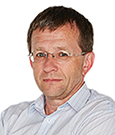
EMBL Heidelberg
Germany
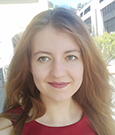
University College Cork
Ireland
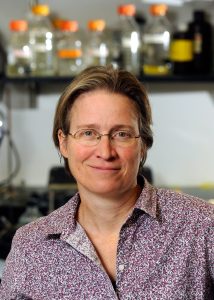
Johns Hopkins University School of Medicine
USA
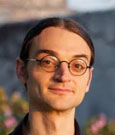
University of California, Berkeley
USA

University of Bern
Switzerland
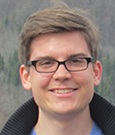
University of Bern
Switzerland
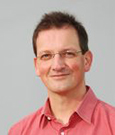
University of Bern
Switzerland
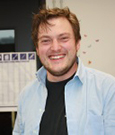
University of Regensburg
Germany
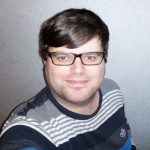
University of Regensburg
Germany
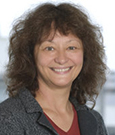
Max Planck Institute for Biophysical Chemistry
Germany
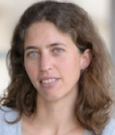
Weizmann Institute of Science
Israel
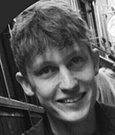
University College Cork
Ireland
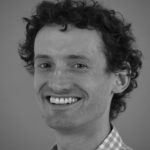
Hubrecht Institute-KNAW
Netherlands

MRC Toxicology
UK

University College Cork
Ireland

University of Bern
Switzerland

University of Regensburg
Germany

Training Lab Technician
EMBL Heidelberg
Germany
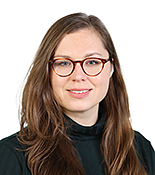
Course and Conference Officer
EMBL Heidelberg
Germany
Got something to say? Tweet it with #EMBORiboProf
| Time (Europe/Berlin) | Session | Location |
|---|---|---|
| 14:00 – 15:30 | Onboarding session: Welcome, introduction to material and software testing | Virtual |
| Time (Europe/Berlin) | Session | Location |
|---|---|---|
| 13:15 | Bus to EMBL ATC | ISG Hotel |
| 13:30 – 14:00 | Registration and light refreshments | Courtyard A+B |
| 14:00 – 14:30 | Welcome and house notes and course overview Pavel Baranov – University College Cork, Ireland Sebastian Leidel – University of Bern, Switzerland Jan Medenbach – University of Regensburg, Germany Elisabeth Zielonka – EMBL Heidelberg, Germany | Courtyard A+B |
| 14:30 – 15:00 | Ice-Breaking activity | Courtyard A+B |
| 15:00 – 15:30 | Coffee Break | Courtyard A+B |
| 15:30 – 16:00 | Introduction Lecture: Overview of the course and technology background Pavel Baranov – University College Cork, Ireland Sebastian Leidel – University of Bern, Switzerland Jan Medenbach – University of Regensburg, Germany | Courtyard A+B |
| 16:00 – 17:00 | Lecture Jan Medenbach – University of Regensburg, Germany | Courtyard A+B |
| 17:00 – 18:00 | Lecture Sebastian Leidel – University of Bern, Switzerland | Courtyard A+B |
| 18:00 – 20:00 | Flash talks by participants, speakers and trainers | Courtyard A+B |
| 20:00 | Bus to ISG Hotel | ATC Entrance |
| 20:15 – 21:30 | Dinner & Networking | ISG Hotel |
| Time (Europe/Berlin) | Session | Location |
|---|---|---|
| 08:10 | Bus to EMBL ATC | ISG Hotel |
| 08:30 – 08:45 | Laboratory Safety Instructions | Courtyard A+B |
| 08:45 – 09:00 | Overview of the day & introduction to practical work | Courtyard A+B |
| 09:00 – 10:00 | Practical work: preparation of RPFs – Native extract preparation Leon Kleemann – University of Bern, Switzerland Sebastian Leidel – University of Bern, Switzerland Jan Medenbach – University of Regensburg, Germany Andreas Meindl – University of Regensburg, Germany Elisabeth Zielonka – EMBL Heidelberg, Germany | Training Lab A+B |
| 10:00 – 10:30 | Coffee Break | Courtyard A+B |
| 10:30 – 11:30 | Practical work: preparation of RPFs – Extract quantification, ribonuclease digestion, preparation of gradients Leon Kleemann – University of Bern, Switzerland Sebastian Leidel – University of Bern, Switzerland Jan Medenbach – University of Regensburg, Germany Andreas Meindl – University of Regensburg, Germany Elisabeth Zielonka – EMBL Heidelberg, Germany | Training Lab A+B |
| 11:30 – 12:00 | Practical work: preparation of RPFs – Start of ultracentrifugation Leon Kleemann – University of Bern, Switzerland Sebastian Leidel – University of Bern, Switzerland Jan Medenbach – University of Regensburg, Germany Andreas Meindl – University of Regensburg, Germany Elisabeth Zielonka – EMBL Heidelberg, Germany | Training Lab A+B |
| 12:00 – 13:00 | Lunch break | EMBL Canteen |
| 13:00 – 15:30 | Computer Class: Raw Data processing: assessment of sequence data quality, adaptors removal, removal of rRNA and tRNA reads, PCR duplicates removal using UMIs, read mapping to genomes and transcriptomes Pavel Baranov – University College Cork, Ireland Alla Fedorova – University College Cork, Ireland Jack Tierney – University College Cork, Ireland Oza Zaheed – University College Cork, Ireland | Computer Training Lab |
| 15:30 – 16:00 | Coffee Break | Courtyard A+B |
| 16:00 – 17:00 | Lecture (remote) Nicholas Ingolia – University of California, Berkeley, USA | Courtyard A+B |
| 17:00 – 19:00 | Practical work: preparation of RPFs Gradient fractionation and RNA preparation Leon Kleemann – University of Bern, Switzerland Sebastian Leidel – University of Bern, Switzerland Jan Medenbach – University of Regensburg, Germany Andreas Meindl – University of Regensburg, Germany Elisabeth Zielonka – EMBL Heidelberg, Germany | Training Lab A+B |
| 19:00 – 21:00 | Poster Session & Discussion concurrent finger food dinner and drinks | ATC Helix A/Rooftop Lounge |
| 21:00 | Bus to ISG Hotel | ATC Entrance |
| Time (Europe/Berlin) | Session | Location |
|---|---|---|
| 08:40 | Bus to EMBL ATC | ISG Hotel |
| 09:00 – 09:15 | Overview of the day | Courtyard A+B |
| 09:15 – 11:00 | Practical work: preparation of RPFs Size selection of RPFs by PAGE Leon Kleemann – University of Bern, Switzerland Sebastian Leidel – University of Bern, Switzerland Jan Medenbach – University of Regensburg, Germany Andreas Meindl – University of Regensburg, Germany Elisabeth Zielonka – EMBL Heidelberg, Germany | Training Lab A+B |
| 11:00 – 11:30 | Coffee break | Courtyard A+B |
| 11:30 – 12:30 | Lecture: Translation – A tug war during viral infection Noam Stern-Ginossar – Weizmann Institute of Science, Israel | Courtyard A+B |
| 12:30 – 13:00 | Practical work: preparation of RPFs Gel extraction setup (over-night incubation) Leon Kleemann – University of Bern, Switzerland Sebastian Leidel – University of Bern, Switzerland Jan Medenbach – University of Regensburg, Germany Andreas Meindl – University of Regensburg, Germany Elisabeth Zielonka – EMBL Heidelberg, Germany | Training Lab A+B |
| 13:00 – 14:00 | Lunch break | EMBL Canteen |
| 14:00 – 16:00 | Computer Class: Quality Assessments: Analysis of read mapping across different functional regions; read length distribution and triplet periodicity, metagen profiles for the assessment of global translation Pavel Baranov – University College Cork, Ireland Alla Fedorova – University College Cork, Ireland Jack Tierney – University College Cork, Ireland Oza Zaheed – University College Cork, Ireland | Computer Training Lab |
| 16:00 – 16:30 | Coffee break | Courtyard A+B |
| 16:30 – 17:30 | Lecture (remote) Rachel Green – Johns Hopkins University School of Medicine, USA | Courtyard A+B |
| 17:30 – 19:00 | Interactive discussion round – Responsible conduct of research: ● sources of experimental artifacts ● the technology in different species ● what are the key quality controls? ● parameter space for optimization | Courtyard A+B |
| 19:00 – 21:00 | Poster Session & Discussion concurrent finger food dinner and drinks | ATC Helix A/Rooftop Lounge |
| 21:00 | Bus to ISG Hotel | ATC Entrance |
| Time (Europe/Berlin) | Session | Location |
|---|---|---|
| 08:40 | Bus to EMBL ATC | ISG Hotel |
| 09:00 – 09:15 | Overview of the day | Courtyard A+B |
| 09:15 – 10:45 | Practical work: Library Preparation – Dephosphorylation, linker ligation Leon Kleemann – University of Bern, Switzerland Sebastian Leidel – University of Bern, Switzerland Jan Medenbach – University of Regensburg, Germany Andreas Meindl – University of Regensburg, Germany Elisabeth Zielonka – EMBL Heidelberg, Germany | Training Lab A+B |
| 10:45 – 11:15 | Coffee break | Courtyard A+B |
| 11:15 – 13:15 | Computer Class: Goal oriented data analysis: Differential gene expression; detection of translated ORFs; translational pauses; codon-specific decoding rates Pavel Baranov – University College Cork, Ireland Alla Fedorova – University College Cork, Ireland Jack Tierney – University College Cork, Ireland Oza Zaheed – University College Cork, Ireland | Computer Training Lab |
| 13:15 – 14:15 | Lunch break | EMBL Canteen |
| 14:15 – 15:15 | Lecture: Junk translation, translation of junk and translation that does not make proteins Pavel Baranov – University College Cork, Ireland | Courtyard A+B |
| 15:15 – 16:15 | Lecture Vladimir Benes – EMBL Heidelberg, Germany | Courtyard A+B |
| 16:15 – 16:45 | Bus downtown | ATC Entrance |
| 16:45 – 18:45 | Guided tour of Heidelberg & free time downtown | |
| 18:45 – 21:15 | Course dinner |
| Time (Europe/Berlin) | Session | Location |
|---|---|---|
| 08:40 | Bus to EMBL ATC | ISG Hotel |
| 09:00 – 09:15 | Overview of the day | Courtyard A+B |
| 09:15 – 11:15 | Practical work: Library preparation subtractive hybridization, 1st purification (solid phase extraction), reverse transcription Leon Kleemann – University of Bern, Switzerland Sebastian Leidel – University of Bern, Switzerland Jan Medenbach – University of Regensburg, Germany Andreas Meindl – University of Regensburg, Germany Elisabeth Zielonka – EMBL Heidelberg, Germany | Training Lab A+B |
| 11:15 – 11:45 | Coffee break | Courtyard A+B |
| 11:45 – 13:15 | Practical Work: Library preparation 2nd purification (solid phase extraction), circularization of RT product Leon Kleemann – University of Bern, Switzerland Sebastian Leidel – University of Bern, Switzerland Jan Medenbach – University of Regensburg, Germany Andreas Meindl – University of Regensburg, Germany Elisabeth Zielonka – EMBL Heidelberg, Germany | Training Lab A+B |
| 13:15 – 14:15 | Lunch break | EMBL Canteen |
| 14:15 – 15:15 | Guided tour of the EMBL genomics core facility (Genecore) | Genecore |
| 15:15 – 16:15 | Practical Work: Library preparation 3rd purification (solid phase extraction), pre-amplification PCR Leon Kleemann – University of Bern, Switzerland Sebastian Leidel – University of Bern, Switzerland Jan Medenbach – University of Regensburg, Germany Andreas Meindl – University of Regensburg, Germany Elisabeth Zielonka – EMBL Heidelberg, Germany | Training Lab A+B |
| 16:15 – 16:45 | Coffee break | Courtyard A+B |
| 16:45 – 17:45 | Lecture (remote) Anne Willis – MRC Toxicology, UK | Courtyard A+B |
| 17:45 – 18:15 | Practical Work: Library preparation – purification of PCR product Leon Kleemann – University of Bern, Switzerland Sebastian Leidel – University of Bern, Switzerland Jan Medenbach – University of Regensburg, Germany Andreas Meindl – University of Regensburg, Germany Elisabeth Zielonka – EMBL Heidelberg, Germany | Training Lab A+B |
| 18:15 – 19:15 | Dinner | EMBL Canteen |
| 19:15 – 20:45 | Discussion round – Responsible conduct of research: ● protocol optimization ● the technology in different model organisms ● future applications | Courtyard A+B |
| 20:45 | Bus to ISG Hotel | ATC Entrance |
| Time (Europe/Berlin) | Session | Location |
|---|---|---|
| 08:40 | Bus to EMBL ATC | ISG Hotel |
| 09:00 – 09:15 | Overview of the day | Courtyard A+B |
| 09:15 – 10:15 | Lecture: Translation dynamics and protein folding Marina Rodnina – MPI Biophysical Chemistry, Germany | Courtyard A+B |
| 10:15 – 10:45 | Coffee break | Courtyard A+B |
| 10:45 – 11:30 | Practical Work: Library preparation – Scouting PCR, preparation of gels Leon Kleemann – University of Bern, Switzerland Sebastian Leidel – University of Bern, Switzerland Jan Medenbach – University of Regensburg, Germany Andreas Meindl – University of Regensburg, Germany Elisabeth Zielonka – EMBL Heidelberg, Germany | Training Lab A+B |
| 11:30 – 13:00 | Computer Class: The use of public data resources. riboSeq.Org and beyond Pavel Baranov – University College Cork, Ireland Alla Fedorova – University College Cork, Ireland Jack Tierney – University College Cork, Ireland Oza Zaheed – University College Cork, Ireland | Computer Training Lab |
| 13:00 – 14:00 | Lunch break | EMBL Canteen |
| 14:00 – 15:30 | Discussion round: Data analyses artifacts | Courtyard A+B |
| 15:30 – 16:00 | Practical Work: Library preparation Analysis of PCR products by PAGE Leon Kleemann – University of Bern, Switzerland Sebastian Leidel – University of Bern, Switzerland Jan Medenbach – University of Regensburg, Germany Andreas Meindl – University of Regensburg, Germany Elisabeth Zielonka – EMBL Heidelberg, Germany | Training Lab A+B |
| 16:00 – 16:30 | Coffee break | Courtyard A+B |
| 16:30 – 18:00 | Practical Work: Library preparation – Analysis of PCR products by PAGE (continued); final discussion on library preparation Leon Kleemann – University of Bern, Switzerland Sebastian Leidel – University of Bern, Switzerland Jan Medenbach – University of Regensburg, Germany Andreas Meindl – University of Regensburg, Germany Elisabeth Zielonka – EMBL Heidelberg, Germany | Training Lab A+B |
| 18:00 – 19:00 | Open discussion – Responsible conduct of research: ● data analysis bottlenecks and artifacts ● data management ● FAIR principle ● user defined questions | Courtyard A+B |
| 19:00 | Bus to ISG Hotel | ATC Entrance |
| 19:15 – 21:15 | Dinner and networking | ISG Hotel |
| Time (Europe/Berlin) | Session | Location |
|---|---|---|
| 08:40 | Bus to EMBL ATC | ISG Hotel |
| 09:00 – 09:15 | Overview of the day | Courtyard A+B |
| 09:15 – 10:15 | Lecture: Ribosome profiling in single cells Michael VanInsberghe – Hubrecht Institute-KNAW | Courtyard A+B |
| 10:15 – 10:45 | Coffee break | Computer Training Lab |
| 10:45 – 11:45 | Computer Class: Datamining competition I. Identifying evidence of non-standard translation mechanisms (student presentations of results) Pavel Baranov – University College Cork, Ireland Alla Fedorova – University College Cork, Ireland Jack Tierney – University College Cork, Ireland Oza Zaheed – University College Cork, Ireland | Computer Training Lab |
| 11:45 – 12:45 | Lunch break | EMBL Canteen |
| 12:45 – 15:15 | Computer Class: Datamining competition II. Identifying evidence of non-standard translation mechanisms (student presentations of results) Pavel Baranov – University College Cork, Ireland Alla Fedorova – University College Cork, Ireland Jack Tierney – University College Cork, Ireland Oza Zaheed – University College Cork, Ireland | Computer Training Lab |
| 15:15 – 16:15 | Open discussion and feedback | Courtyard A+B |
| 16:15 | End of course & bus to main station | ATC Entrance |
The course is limited to 18 participants. For selection purposes, please note that your application will not be considered without a letter of motivation.
Registration fees include admission, course materials, COVID-19 safety measures, meals and coffee breaks.
This EMBO course includes accommodation and transportation to and from the ISG Hotel to the venue.
| Academia | €500 |
| PhD Student | €500 |
| Industry | €1000 |
NO visa support letters will be issued until payment of the registration fee is confirmed.
The registration fee should be paid only after acceptance to the course. The results will be announced approximately 2-3 weeks after the application deadline.
After you have logged in and successfully registered, you will receive an email asking you to submit your motivation letter. Click on the link provided and enter your motivation letter in the text box provided. Alternatively you can submit your motivation letter by clicking on the link on the confirmation page directly after registering.
Instructions
Please note:
For detailed instructions, please watch our video on how to submit a course motivation letter.
For further information about registration and motivation letter submission please refer to the FAQ page.
Limited financial assistance is provided by the EMBL Advanced Training Centre Corporate Partnership Programme and EMBO in the form of both registration fee waivers and travel grants. Availability is limited to participants attending on-site EMBL Courses and virtual or on-site EMBO Practical Courses in Heidelberg, and will be indicated during the motivation letter submission process.
Your place in the course is only confirmed by paying the registration fee, which is mandatory even when receiving a fee waiver.
The fee waiver will cover the registration sum that you have paid to attend the course.
The travel grant will cover the cost of travel (airfare, train, bus, taxi, accommodation, visa, and/or registration fees*) and is provided up to specified caps which are normally as follows:
– up to €400 for participants travelling to an EMBL Course within Europe.
– up to €1000 for participants travelling to an EMBL Course from outside Europe.
– up to €500 for any participant travelling to an EMBO Practical Course.
– up to €1000 for any participant working in Chile, India, Singapore or Taiwan travelling to an EMBO Practical Course.
– up to €700 for any participant working in Croatia, Czech Republic, Estonia, Greece, Hungary, Italy, Lithuania, Luxembourg, Poland, Slovenia, and Turkey travelling to an EMBO Practical Course.
*Registration fees are only covered for EMBO Practical Courses
The organisers may reduce the grant cap to accommodate more participants. Recipients will be notified of their travel cap amount when they are informed of the outcome of their application. Original receipts must be provided with your signature for all costs incurred within two months of completion of travel. Scanned copies cannot be accepted.
For EMBO Practical Course participants with children, there is the possibility to apply for a childcare grant to offset child care costs incurred by participants or speakers when participating at a course. Eligible costs include fees for a babysitter or child-care facility, travel costs for a caregiver, or travel costs for taking the child to the meeting etc. Please note that priority will be given to early-stage researchers. A maximum amount of €500 can be awarded per participant applying for an EMBO childcare grant.
Applies to selected courses only. Availability will be indicated during the motivation letter submission process.
This grant covers costs related to your attendance at the course (registration, travel and accommodation costs). The grant is restricted to PhD students and postdocs who conduct basic biomedical research.
Whether you are eligible to apply for a travel grant, depends on when you received your university entrance qualification (e.g. Abitur, A-Levels, High School Diploma, Final State Examination):
– for PhD and MD students, as well as graduates, the university entrance qualification must not have been obtained more than 11 years ago at the time of the envisaged course
– for postdocs, the university entrance qualification must not have been obtained more than 13 years ago at the time of the envisaged course
You may apply for financial assistance when submitting your motivation letter for courses. In your application, you will be asked to answer questions regarding why your lab cannot fund your attendance and how your attendance will make a difference to your career. Application for financial support will not affect the outcome of your registration application.
For the Boehringer Ingelheim Fonds Travel Grant, there is a pre-application question during the motivation letter submission process, and if selected you will be requested to complete a standard form and documentation consisting of your travel expense estimation.
The scientific organisers will select the recipients of all financial assistance during the motivation letter selection process. Results will be announced approximately 6-8 weeks before the event start date, however for some events this may be delayed. Selection results do not impact your admission to the course. Selection is based on scientific merit, your current work or study location, the reasons for needing financial support, and the impact this event will have on your career.
Costs will be reimbursed after the meeting only once a reimbursement form and original receipts (from travel costs) have been received.
See our list of external funding opportunities and for further information about financial assistance please refer to the FAQ page.
Accommodation has been pre-booked for you at the ISG Hotel for the default dates of 26 March to 1 April 2023 (6 nights). Please note that the course registration fee includes coverage of accommodation costs in twin rooms, including breakfasts, for your stay at the ISG but that you will be required to pay an additional cost of 31 EUR per night for a single room. This should be paid by you directly to the ISG during your stay. Any additional nights need to be booked and paid for by you. We recommend that all course participants stay at the ISG Hotel which is the dedicated hotel for the course.
Shuttle buses will go from the ISG Hotel to EMBL and back, mornings and evenings. A bus schedule and location of the bus stops will be made available prior to the meeting.
Address: EMBL Heidelberg, Meyerhofstraße 1, 69117 Heidelberg, Germany
For further information on getting to EMBL Heidelberg visit our Travel Information page.
For enquiries about accommodation and local transportation please refer to the FAQ page.
The EMBL eCampus learning platform will be used to collaborate, communicate and network with all of the course participants. All participants will receive information on how to join shortly before the course. We recommend using Chrome, Safari or Mozilla Firefox browsers for eCampus.
Please find additional information including FAQs, terms and conditions, COVID-19 safety policy and travelling to EMBL on our Information for Participants page.
COVID-19 information for on-site events at EMBL Heidelberg can be found in our COVID-19 FAQs.
Event partners
Event sponsors
Event supporters
Sponsorship opportunities
We offer a variety of event sponsoring possibilities, with the flexibility to select a set sponsorship package or combine individual sponsorship options to suit your event budget. Discounts are available for companies sponsoring multiple events at EMBL Heidelberg. View other events, or contact sponsorship@embl.de for further information.
If you are interested in becoming a media partner of this event, please visit our media partnerships webpage.
EMBL wishes to warn sponsors of EMBL conferences and courses of fraudulent schemes purporting to offer sponsorship opportunities on behalf of EMBL or affiliated with EMBL officials. One current scam campaign of which we are aware is conducted using the name ‘Judy Eastman’ (judy@gopcontact.a2hosted.com) and entails approaches to sponsors offering sponsorship opportunities on EMBL’s behalf. Please be kindly advised that all relevant communication regarding sponsorship of EMBL conferences, symposia and courses is handled by EMBL directly and is sent from an official EMBL account. EMBL does not work with any external providers on sponsorship acquisition.
Please also note that:
Suspicious communications purportedly from, for or on behalf of EMBL should be reported to EMBL at the following email address sponsorship@embl.de.
Want to let others know you’re attending this event? Take a look at our shareable media and feel free to use them in your social media channels or presentations.

Date: 26 Mar - 1 Apr 2023
Location: EMBL Heidelberg
Venue: EMBL Advanced Training Centre
Deadline(s):
Application: Closed
Organisers:
Contact: Aline Schnieder